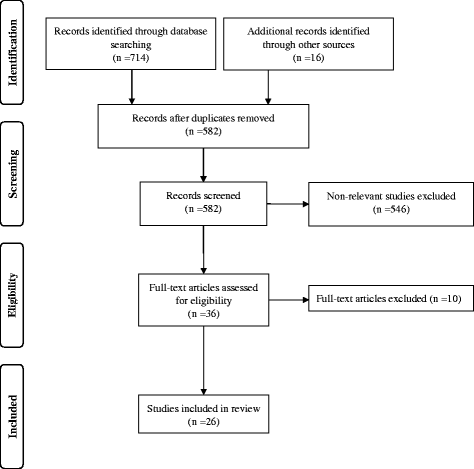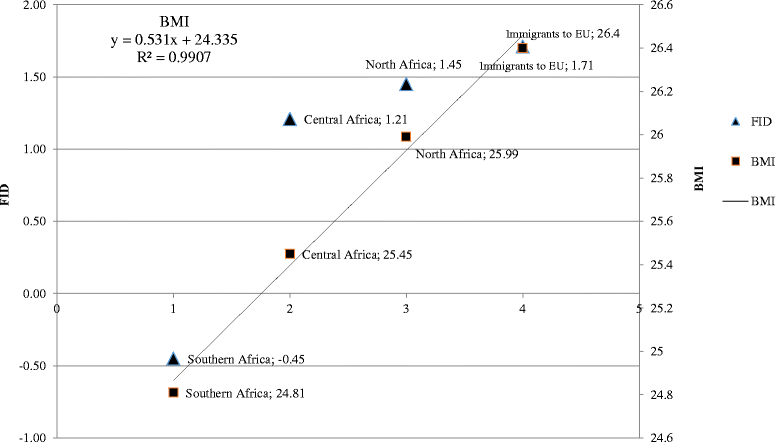Body image perception of African immigrants in Europe
- PMID: 27558365
- PMCID: PMC4995766
- DOI: 10.1186/s12992-016-0184-6
Body image perception of African immigrants in Europe
Abstract
Nutritional disorders are now spreading worldwide both in developed and developing countries. Body image ideals and dissatisfaction have been linked to a number of poor health outcomes, including nutritional disorders. While previous studies have offered insight into weight status and body image perception of immigrants in North America, very few studies have analysed these aspects in migrants from Africa to Europe. Our review examines the effects of the migration process on beauty ideals and body dissatisfaction in African immigrants in Europe compared to residents in their own countries. The PubMed, PsycINFO and Google Scholar databases were searched for studies published from January 2000 till November 2015. Of the 730 titles identified, 26 met the inclusion criteria and were included in the present review. Among African residents, the body preferences depend on the country of residence and their socio-cultural status. Ethnic groups living in great isolation or with low incomes still have an ancestral idea of beauty, preferring a shapely body. However ethnic groups living in urban areas are moving toward Westernization of beauty ideals, preferring underweight or normal weight bodies. This review highlights that both residents and migrants are at high risk of nutritional disorders due to the adoption of Western beauty ideals. The results suggest that body dissatisfaction and BMI are increasing from Southern Africa to Europe according to a geographical gradient (described for females by Spearman's coefficient and linear regression, respectively). We emphasize the need for monitoring of the weight and psychological status of immigrants and the development of specific preventive strategies in European countries.
Keywords: BMI; Body image perception; Dissatisfaction; Europe; Health; Migration.
Figures



References
-
- Ng M, Fleming T, Robinson M, Thomson B, Graetz N, Margono C, et al. Global, regional, and national prevalence of overweight and obesity in children and adults during 1980–2013: a systematic analysis for the Global Burden of Disease Study 2013. Lancet. 2014;384:766–81. doi: 10.1016/S0140-6736(14)60460-8. - DOI - PMC - PubMed
-
- Swami V, Frederock DA, Aavik T, Alcalay L, Allik J, Anderson D, et al. The attractive female body weight and female body dissatisfaction in 26 countries across 10 world regions: results of the international body project I. Pers Soc Psychol Bull. 2010;36:309–25. doi: 10.1177/0146167209359702. - DOI - PubMed
-
- Frederick Female body dissatisfaction and perceptions of the attractive female body in Ghana, the Ukraine, and the United States. Psychological Topics. 2008;17:203–17.
Publication types
MeSH terms
LinkOut - more resources
Full Text Sources
Other Literature Sources
Miscellaneous

